When Lee Ee Vee and Tee May Yee started their home ice-cream business, it was just the two of them, a small ice-cream machine and a whole lot of manual labour.
Now, three years later and with their brand The Last Polka a favourite in the independent food business community, things are still very much the same.
Sure, their handmade artisanal ice-creams might be selling at 12 locations across the Klang Valley now, compared to the purely online order and personal delivery service of their first couple of years, but it’s still just the two of them, and a whole lot of manual labour (though they have invested in an ice-cream machine with a significantly higher output).
For what must have seemed like the longest time, May and Ee Vee, both 29 now, were running their business out of their parents’ kitchens, on a small ice-cream machine someone had bought as a gift for May when she was working in London.
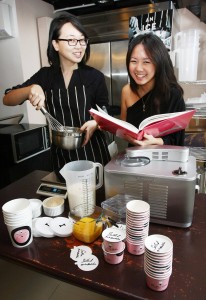
Tee May Yee (L) and Lee Ee Vee are the founders of The Last Polka, an independent artisanal ice-cream company that went from small-scale online business to being sold at 12 locations across the Klang Valley in less than three years.
Her homemade concoctions with that machine was a huge hit among dinner party guests, so when Ee Vee dropped by to visit her in London, they joked about starting an ice-cream business, even though they both had corporate jobs back then.
By the time May returned to Malaysia in 2009, however, the idea somehow seemed less ridiculous, and the girls got together to start experimenting with some flavours in their kitchens. They soon produced what would be their first two products – Horlicks and Peanut Butter ice cream. That’s right, Malaysia. Someone finally made Horlicks ice-cream.
They even have Teh Tarik now.
“It just happened overnight,” said May. “We set up a website (thelastpolka.com), and at first it was just to cater to friends and friends of friends.”
But with more young people discovering an appreciation for independent food businesses, which is as much a philosophy as it is a business model, The Last Polka quickly attracted a following.
They started out producing around three to five pints a day; now, they sell around 3,000 cups a month, not including pints.
The girls didn’t have any big business plan. They simply stuck to a philosophy that focused on creating artisanal ice-creams with only fresh ingredients, “not powdered mix churned out by a machine” as May says, and marketing that product purely through word of mouth, which in this day and age really means “social media”.
“It’s a lot easier than 10-15 years ago, when people didn’t see the value in artisanal stuff,” said Ee Vee, who only recently quit her job to focus fully on the company. May still runs another business.
“Our market, in particular people who are in their 20s and 30s, is more receptive that way. They have more appreciation for handmade products. They appreciate the quality of small production,” explained Ee Vee.
What is Indie?
That, in a nutshell, is what an independent food business is all about – small start-up businesses with a commitment to producing quality food and sharing quality time with their customers. The ultimate hipster purists of the food industry, so to speak – no flashy restaurants or marketing campaigns, just products and service that are good enough to sell themselves to the local community.
That philosophy has resonated well with young people in the last few years, with more and more independent businesses popping up every month, from part-time bakers to cafes.
Take, for example, the three siblings behind independent cafe Whisk, who have been around for a few years now in the Klang Valley. They bake all their cakes and desserts at home, don’t keep anything overnight, and import fresh coffee beans from Singapore
Whisk started as a “family project” run by Emma, Nora, and Azlan Khalid – with some help from their parents.
One of the main reasons why more young people are starting their own independent businesses, according to Azlan, is because it gives them a chance to take control of their future.
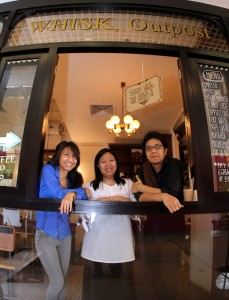
Nora, Emma and Azlan Khalid are the three siblings running Whisk, an independent cafe. They are pictured here at their second outlet in 1 Utama shopping centre, Selangor.
“Many of my peers are starting to realise they don’t know what they want to do in life,” said Azlan, who quit his studies during his final year of law school in London. “It’s a modern world, and people are feeling lost. They don’t know how to keep their mental and emotional health straight, and they just want to feel like they are designing their own future.”
For Whisk, the future looks bright. Their first cafe in Subang Jaya, Selangor, quickly became a hit, especially with their freshly-baked macarons and quality coffee. That led the family to open another outlet called Whisk Outpost in Petaling Jaya.
For Nora, Whisk isn’t just a business. It’s a chance to create a positive cultural change, not just in people’s attitudes towards paying for quality food, but also in terms of service.
In fact, Nora says the family made a commitment to keeping Whisk “small”, so they can have direct contact with their customers.
“It’s imperative that locals support quality, and know the value of every product and service they’re paying for.
“If we all don’t make a conscious effort to do so, we won’t see a change in the industry,” she said.
As with many independent businesses, Whisk believes in buying the best ingredients from the best sources, which helps to keep the whole industry going.
“We work very closely with our (coffee) roasters, who work closely with the best farms, who then get paid better to produce better coffee cherries. Everyone benefits,” Nore shared.
About the community
According to Artisan Roast co-owner Amirah Mohamad, what many customers and business owners like about the independent food movement is the sense of community.
Artisan Roast is an independent coffee shop in Kuala Lumpur, that serves coffee made from fresh coffee beans imported and roasted by partner company, R.A.W. (which stands for ‘real and wholesome’).
Everything in Artisan is made from the absolute best ingredients, and as Amirah says, “the only compromise (in quality) is on what we can source.” It’s not exactly easy to find top coffee beans in Malaysia, at least not until Artisan and R.A.W. came along.
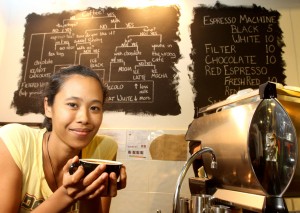
Amirah Mohamad, co-owner of independent cafe Artisan Roast in Taman Tun Dr Ismail, Selangor, says that with the independent food scene, it's more about the community than just the products - even though the food and beverages they sell are made with the best ingredients available.
Inspired by Australia’s independent coffee scene, Amirah says indie cafes like Artisan aren’t much different from the traditional mamak and kopitiam – the culture of taking time out to talk is very much the same, it’s just a different environment.
“The majority of our customers are more interested in us rather than just what we do. It’s a positive culture. It creates a space where people can know each other, which doesn’t happen a lot in a big city like KL,” she said.
Fans of Artisan’s coffee, like Yip Wai Kit, 24, find it hard to go back to the usual coffee franchises because “they all taste the same”.
“With independent cafes, each place has a different flavour. But Artisan is one of the best. You can really taste the difference in the coffee,” he said.
For another Artisan regular, Joey Mah, 28, the independent food movement is about so much more than just the product.
“I think people like it because there’s a community there they can identify with. Like at Artisan, everyone is there for the same reason – to have a good cup of coffee and hang out.
“At some of these places, the food is just okay, but it’s knowing the quality of the ingredients you’re putting in to your body, and knowing the people there – that keeps us going back. When Artisan moved, I thought I wouldn’t go any more. But because of the people, and because it’s hard to find coffee that good, I’m still here every day,” said Joey.
The Indie network
Even between independent cafes, there is nothing but healthy competition.
Zekry Mohd Nor, 30, one of the founders of independent coffee shop Mollydookers in KL, says they even share baristas with some cafes.
“The community is still new, so we tend to talk to each other and share tips,” said Zekry. “We talk a lot on social media, and we visit each others’ shops, just for support.”
One of the best examples of how well independent food businesses in the Klang Valley work together is the time Mollydookers did their first event, a hot air balloon fair in Putrajaya.
“That’s where we first met The Last Polka. They were there with their chiller and ice-cream bell,” he recalled.
Disaster struck when Mollydookers’ coffee machine broke down, right on the busiest day of the fair, when it also started to rain.
“It was total chaos. There was a really long queue building up, so May and Ee Vee offered to help. They tore up pieces of cardboard and started going through the line taking orders for us!” said Tsarina Tajuddin, who alongside Zekry and Hashraf Hashim make up the trio behind Mollydookers.
Tsarina also said that many independent bakers had given them free cakes as samples for their customers along with their business cards. If the customers like what they’ve tasted, they could surf to that baker’s website to order more.
Hard Work
One of the main ideas behind starting an independent food business might be small scale productions, but that means big work loads.
Whisk, for instance, is open from 10am to 10pm. After they close up, they go home to bake stuff for the next day, and they deliver everything themselves in the morning.
“Being indie isn’t about being cool, and getting to do whatever you want. There’s still a bottom line, it’s still a business. A lot goes in to it. We don’t have the freedom to leave whenever we want,” said Nora.
The good thing, however, is that the financial barrier to entry is relatively low with independent businesses. Zekry says it took them around RM150,000 to start Mollydookers, and most indie businesses would not even need a physical store like theirs.
Michelle Pong, 25, who owns independent restaurant Fat Spoon in Petaling Jaya, adds that she didn’t have to spend anything on marketing – everything just happened on social media.
“All of (the marketing) happened through blogs and word of mouth. They really helped, versus what my mother wanted. She told me to print flyers and hand them around, but I said, ‘save your money’,” she said.
What you do need to invest in, however, is knowledge.
“We bought books on how to start a cafe, and I even signed up for a barista training course in Melbourne. Before that, I used my BonusLink points to redeem a small coffee machine to practise, and tried to learn as much as I could from YouTube,” said Hashraf.
But of course, at the end of the day, no matter how tough it is, chances are you’ll enjoy the ride.
“It’s all about discovering your potential, about being creative,” said Ee Vee. “You’ll probably work more hours (in an independent business) than you do in a corporate job, but you’ll have much more satisfaction. It’s better to have taken the risk and failed, than to have not tried at all.”
RELATED STORY: Expansion vs Selling out – What happens when indie cafes have to consider mainstreamin’.

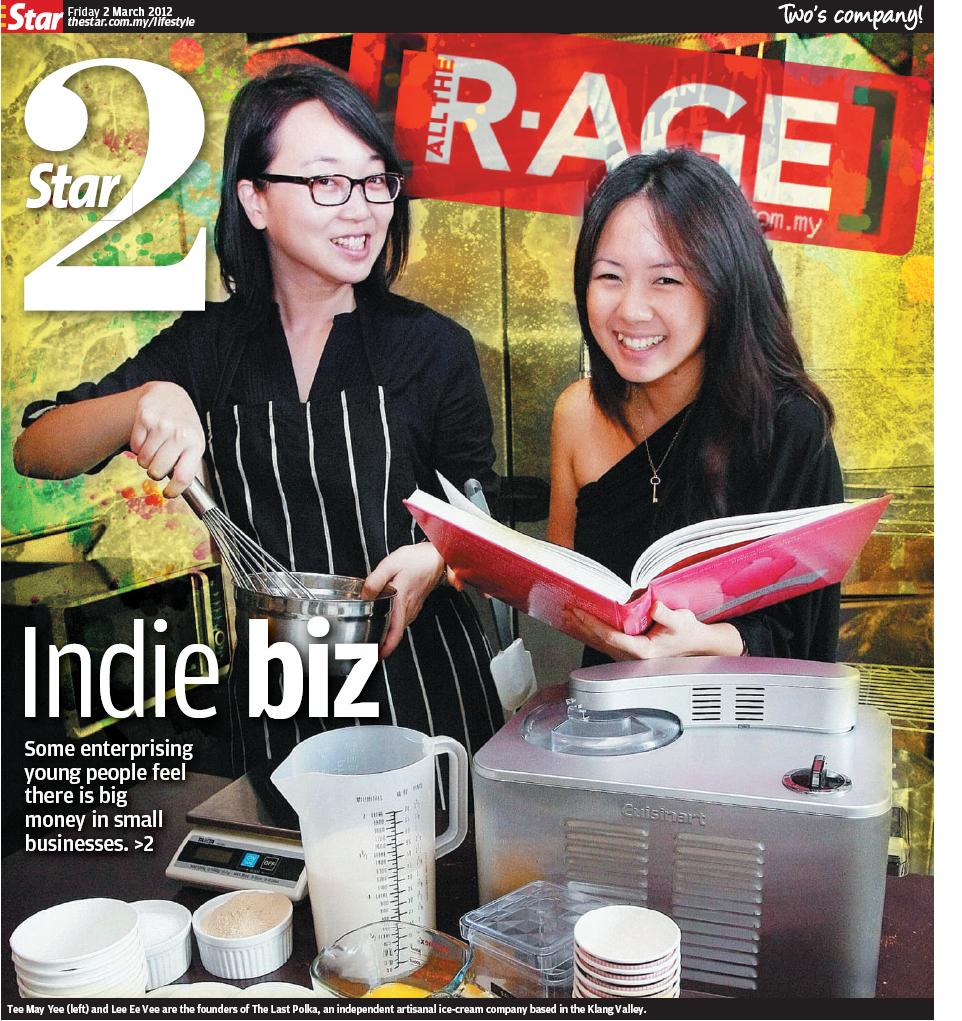
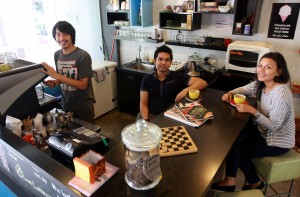
Tell us what you think!